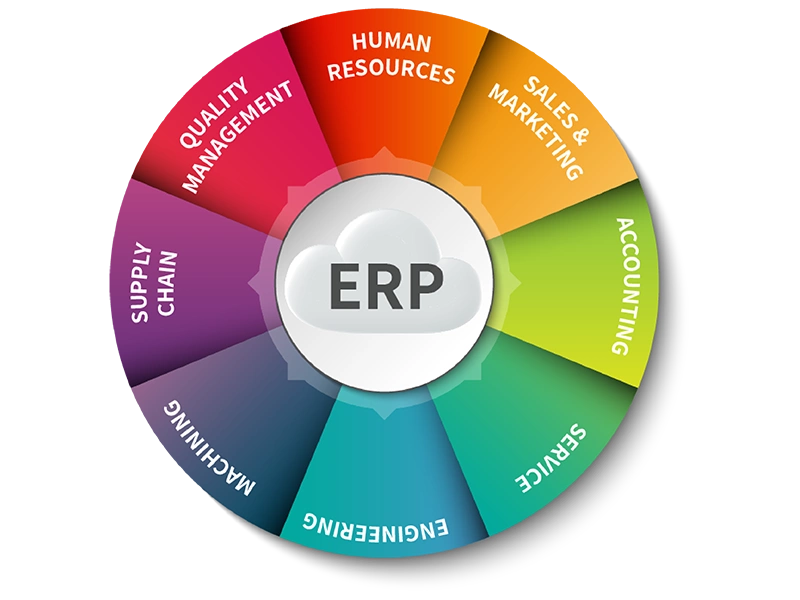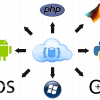ERP and cloud applications
Restful API Applications
Business website or online store
SEO Analysis and advertising
ERP Explained
Enterprise resource planning—a moniker coined by research firm Gartner in 1990—can be a confusing concept because ERP is not a standalone application. While ERP is a category of business software, ERP systems comprise various modules, each addressing a specific business requirement. For example, products-based companies typically have modules for accounting, inventory and order management, customer relationship management (CRM) and, if they produce or assemble products, manufacturing. Services businesses may turn to modules for accounting, project management, professional services automation and CRM.
Each module pulls information from and pushes information into the central database that is a key component of an ERP system. This common data repository provides visibility into all departments and thus allows leaders to evaluate and compare the performance of different areas of the business and understand the full impact of decisions. It also powers other ERP benefits, like process automation, improved internal controls and smarter business intelligence.
Why Is ERP Important for Businesses?
ERP systems have become table stakes for businesses looking to use resources wisely. They can help leaders reallocate human and financial capital or build more efficient processes that save money without sacrificing on quality or performance.
An ERP is also an asset when it comes to planning and coordination. Employees can see current available inventory and customer orders in detail, then compare supplier purchase orders and forecasted future demand. If necessary, they can make adjustments to head off problems. ERP software improves communication and collaboration as well because workers can check on the status of other departments to guide their own decisions.
As a comprehensive source of data, an ERP system also provides a host of reports and analytics that can be difference-makers for the business. Turning a vast trove of information into charts and graphs that clearly illustrate trends and help model possible results is an ERP capability executives find invaluable.
How Does an ERP System Work?
ERP systems work by using a defined, standard data structure. Information entered by one department is immediately available to authorized users across the business. This uniform structure helps keep everyone on the same page. For example, say a local food distribution chain has multiple locations that often share stock and personnel. As quality, sales and employee data from these sites is fed into the ERP system, it’s formatted to indicate which location it comes from.
Data is then woven into business processes and workflows across departments. Leaders can see if one location is doing significantly better at avoiding spoilage than a sister site a few towns over and work to figure out why, while operations can make sure staffing levels align with traffic patterns. Finance can compare sales to rents to help executives decide whether to consolidate.
ERP systems deliver the most value when a company has modules for each major business function and ensures timely, accurate data entry. And, the more stakeholders have access, the better.
When a company uses business systems from multiple vendors, integrations are generally possible to make data automatically flow into the ERP. This data can then be used throughout the ERP instance to benefit any process or workflow.




